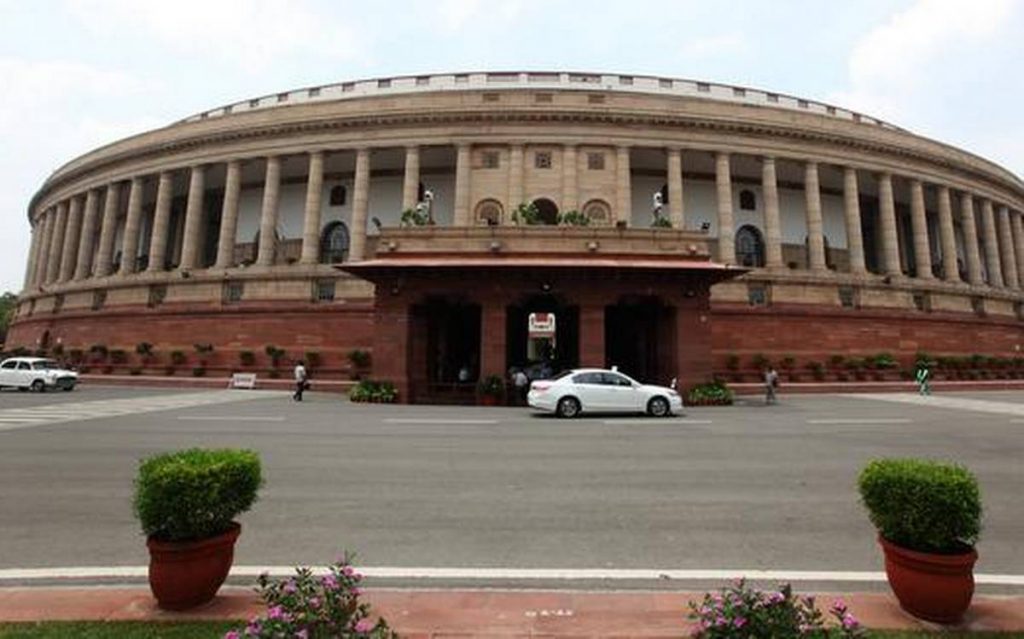Aarohi Girish Dhumale
The Constitution (One Hundred and Twenty-Ninth Amendment) Bill, 2024 about ‘One Nation, One Election’, is expected to be introduced in the current winter session of Parliament by Arjun Ram Meghwal, the Minister of State for Law & Justice and Minister of State for Parliamentary Affairs.
The Bill seeks to introduce Article 82A (on simultaneous elections to the House of the People and all Legislative Assemblies) and amend Articles 83 (duration of the Houses of Parliament), 172 (duration of State Legislatures), and 327 (empowering Parliament to make provisions regarding elections to legislatures). Once passed by both Houses of Parliament, the Bill will come into effect on a date determined by the Central Government, as specified in a notification in the Official Gazette.
Another Bill expected to be tabled is The Union Territories Law (Amendment) Bill, 2024, which aims to amend the Government of Union Territories Act, 1963; the Government of National Capital Territory of Delhi Act, 1991; and the Jammu and Kashmir Reorganisation Act, 2019. This Bill seeks to align the proposed amendments in the main Bill with the provisions related to the Union Territories.
The following amendments are proposed in the Bill:
- The Bill proposes the inserting Article 82A, which would enable ‘simultaneous elections to the House of the People and all Legislative Assemblies.’ Simultaneous elections are defined as general elections conducted simultaneously for the Lok Sabha and all Legislative Assemblies.
- According to the Bill, the President will bring this Article into effect through a ‘public notification’ issued on the date of the first sitting of the House of the People (Lok Sabha) following a general election. This date, specified in the notification, will be referred to as the appointed date.
- Once the notification is issued, all Legislative Assemblies formed in general elections held after the appointed date (the date of the notification) and before the completion of the full term of the Lok Sabha will cease to exist upon the expiration of the Lok Sabha’s full term.
- Article 82A(3) of the Bill states that, before the completion of the full term of the Lok Sabha, the Election Commission shall conduct general elections to both the Lok Sabha and all Legislative Assemblies “simultaneously.” The provisions of Part XV (Elections) of the Constitution will apply to these elections, with necessary modifications, as specified by the Election Commission through an order.
- Section 82A(5) of the Bill states that if the Election Commission believes that elections to any Legislative Assembly cannot be held simultaneously with the general elections to the Lok Sabha, it “may” recommend to the President to issue an order allowing the election to that Legislative Assembly to be conducted at a later date.
- The Bill specifies that even if the term of a Legislative Assembly is deferred, the full term will still conclude on the same date as the end of the full term of the Lok Sabha formed in the general elections, regardless of the provisions in Article 172 of the Constitution.
- Clauses 3 to 7 are proposed to be inserted in Article 83, addressing the concept of a ‘mid-term election.’ According to these clauses, if the Lok Sabha is dissolved before completing its full term of five years, the period between the dissolution date and the end of the full term will be considered an unexpired term.
- Following the dissolution, a mid-term election will be held, and a new Lok Sabha will be formed to serve only for the unexpired term. However, the newly constituted Lok Sabha will not be considered a continuation of the immediately preceding one. Similarly, mid-term elections for Legislative Assemblies are proposed through the insertion of clauses in Article 172.
Similar Amendments have been proposed to the Government of Union Territories Act, 1963, as well as to the respective legislations for the National Capital Territory and Jammu & Kashmir, to incorporate provisions for simultaneous and mid-term elections.
While explaining the need and objectives of the bill, the Government emphasized the urgent need for holding simultaneous elections. It stated, “The imposition of the Model Code of Conduct in various election-bound regions halts development programs, disrupts public life, affects the functioning of services, and diverts manpower from their core responsibilities to handle extended election duties.”

